A conversation with filmmaker Hilan Warshaw
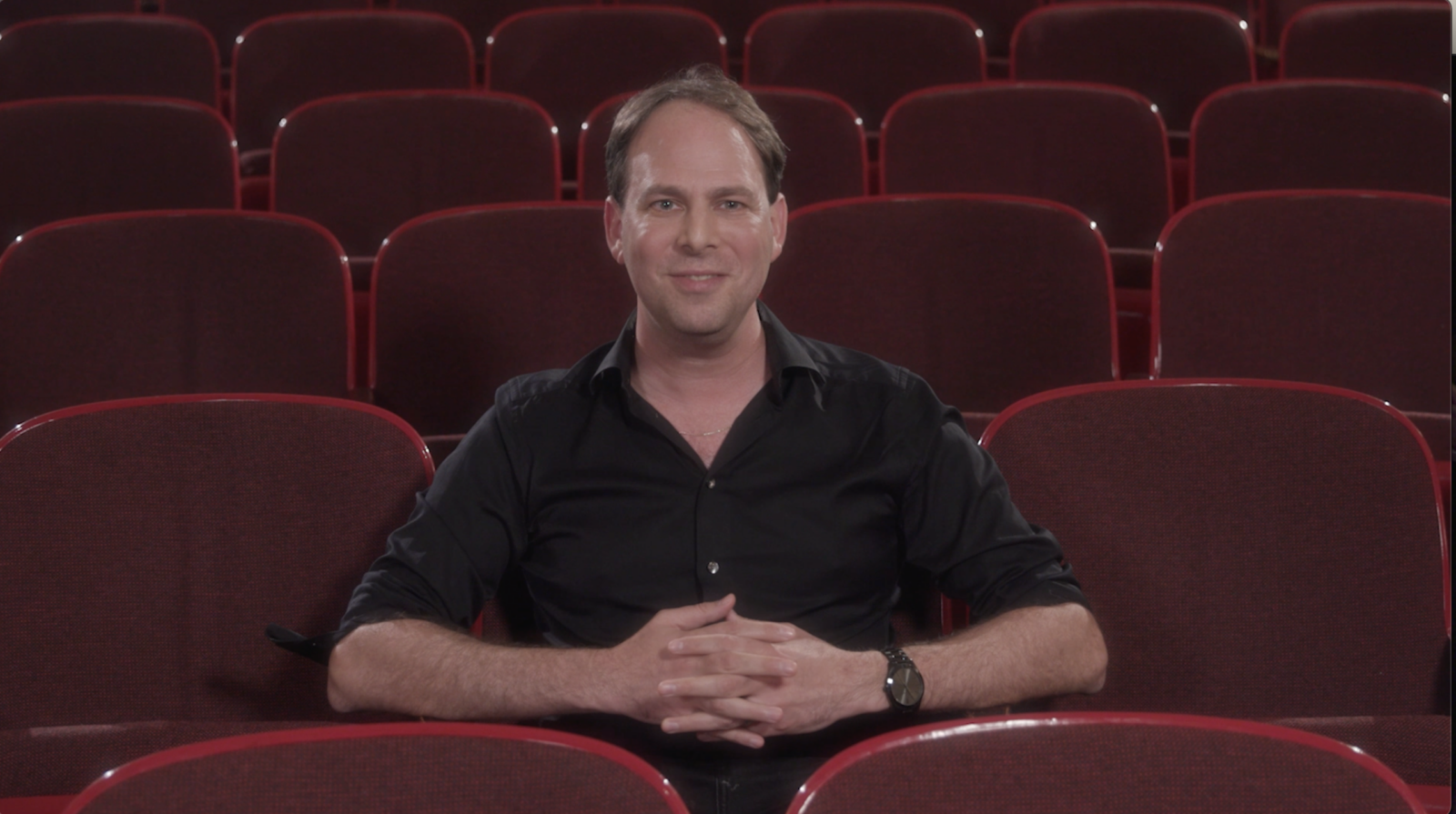
In the lead-up to the ACMP Film Club event about Hilan Warshaw’s “Secret Song” on Sunday, February 18 at 2pm ET, I had the pleasure of catching up with Hilan, and asking him about how his background as a musician led to a unique career as a filmmaker with a primary focus on musical subjects.
Stephanie Griffin: As a longtime friend of your sister, Dalit Warshaw, I know that you grew up in a uniquely erudite and musical New York family. Could you please tell our readers about that background and the formative musical experiences of your youth?
Hilan Warshaw: It was quite a special way to grow up. My sister, who is a wonderful composer (as well as a pianist and thereminist), was very active as a composer while still a child. There were performances of her music by some of the leading orchestras in the country, there were awards and some media attention, and a lot of travel. Starting early on, there were also collaborations in which I would write the narrations for musical-dramatic works for which she wrote the scores; I would often then narrate the works in concert. That was great because, while I was active as a musician– specifically a violinist and, starting in high school, a conductor– my greatest passion from early on was writing and storytelling. I think the most formative aspect of that period was the opportunity to work hands-on with the fusion of story, text, and music. That’s still what I’m doing today as a filmmaker.
Apart from your mother and sister, who were some of your most influential music teachers and mentors?
I had some fantastic and generous conducting teachers. They included Michael Charry at Mannes, Murry Sidlin at Aspen which I attended for conducting as a teenager, Miguel Harth-Bedoya, and Edward Simons, who was the music director of the community orchestra in Rockland County where we lived. Among my violin teachers, the most important was Nicole DiCecco, a beloved figure who taught me both privately and as part of a weekly group music program for young violinists that she founded. Probably the most inspirational musical mentor of all for me was my mother, a pianist and piano teacher, who was was a central force behind a lot of this activity. Trying to speak objectively, I’ve never met a more gifted and intuitive teacher about music and its expressive potential.
Did you participate in any special music programs?
I played in the first violin section of the New York Youth Symphony from ages 12 to 17. That was a hugely important experience in terms of intensifying my love for music– because while I never wanted to be a violin soloist, I found the orchestra completely thrilling– and even, in a sense, starting my turn towards filmmaking. While the orchestra was rehearsing, I would imagine very specific visual scenarios to the pieces that we were playing. Rehearsing each Sunday and then performing this incredible repertoire three times a year in Carnegie Hall impacted me in a way that was unforgettable. When I was 16, I was even very kindly given the opportunity to conduct the orchestra in concert at Carnegie in the overture to Verdi’s La Forza del Destino— which at that age was a level of dopamine high that I’m not sure I’ll achieve too many times in my life! I think that if it hadn’t been for the experience of the orchestra, I might well have tried to make a career as a playwright. But drama plus the emotive and sensory power of music– that in my mind equaled cinema.
In those years I also participated as a violinist in other wonderful musical programs (most of which also included chamber music), among them Mannes Pre-College, Interlochen and the Boston University Tanglewood Instiitute.
Did you ever consider pursuing a career in music?
After high school, I attended Mannes as a conducting major. Stephanie, I think you might actually have attended one of my student conducting appearances there— if I remember correctly, it was followed by a celebration at Café Mozart, of blessed memory!
Of course! Thanks for the reminder – that was quite a night! What made you change course from studying to be a conductor?
I loved conducting very much, and there are times when I still miss it. What became clear to me, though, is that my desire to tell stories and to create new works outran the joy that I might have found in a conducting career. I eventually transferred to New York University’s film program, and haven’t looked back since. When I’m on a set directing actors and the movements of the camera, I feel the same excitement that I felt when I was on the podium.
In general, I feel that film is an orchestra or chamber group with more instruments. If you think about the vertical layout of a chamber music or orchestral score, you could say that in a film you have the staff of dialogue, the staff of sound design, of the image sequence, of color schemes, all happening simultaneously in addition to any actual music that’s on the soundtrack. Many of the principles of rhythm and structure are the same as you have in musical composition— especially as regards film editing. So in a sense I don’t feel that I’ve switched tracks so much as followed the track further, in the way that made most sense for me.
I discovered quite by chance, while organizing filing cabinets at the ACMP office, that you actually worked for ACMP with our original Executive Director Dan Nimetz! How did you hear about ACMP and how did that come about?
That was a lovely freelance job that I took when I was still starting out and supplementing film work with editorial and writing work, often related to music. In the same timeframe, I also worked as a freelance copywriter and proofreader for Carnegie Hall and other places. I was only with ACMP for a few months, but it was great! The work was mostly proofreading the directory, as well as writing a couple of marketing pieces that I believe were used in print materials as well as on the website. There were some very fun afternoons and evenings of work in the ACMP office near Madison Square Park. Dan Nimetz was a delight to work with, as was everyone else at ACMP that I interfaced with at that time.
What circumstances led you to pursue a career as a filmmaker and what steps did you take towards attaining that goal?
Going to film school was an obvious choice once I realized that this was the path I wanted to take. I was fortunate to attend a wonderful film school, NYU, which among other things gave me technical skills that I could use to find work after graduation. I started video editing as a freelancer for a number of organizations; that included editing and co-writing television documentaries for PBS and several European and Asian networks. My goal was always to direct and write my own films, so I started a production company and began to market myself to clients as a producer/director as well as an editor. The most important single step was probably pitching a network that I’d done editing work for on the film that became my first documentary as a director, which they wound up commissioning.
Many ACMP members are already watching “Secret Song” and are looking forward to our ACMP Film Club discussion with you and Eugene Drucker on February 18. Could you please tell us about some of your other films about classical music themes?
I suppose that’s a good segue! My first feature documentary was called Wagner’s Jews, and explored Richard Wagner’s highly complex relationships with young Jewish musicians who were personally and professionally devoted to him. It was the first in what’s become a series of films focusing on composers’ lives and the real-life dramas underlying their work. Secret Song, the film we will be discussing at ACMP, is obviously very much in that vein as well.
My other television films about composers include Through the Darkness about Arnold Schoenberg and his turbulent friendship with the painter Richard Gerstl (which was the personal backdrop to his development of atonality in the Second String Quartet), and In the Key of Bach. Last year I made a musical documentary for PBS in Georgia called My Bolero, with the extraordinary conductor Nathalie Stutzmann— commissioned by the Atlanta Symphony Orchestra, where I’ve worked as video director since 2020. I co-produced another TV film about Rachmaninoff, and there’s a new film about Mahler for Swedish TV on the way. When I’m at the Atlanta Symphony Orchestra, the process of directing nine cameras in the capture of orchestral performances is a total joy for me. I’ve also recently written a feature screenplay on a classical-music theme that I’m discussing with a couple of film companies; fingers crossed that it finds a way to get made soon.
How can our readers access some of these films?
Some of the documentaries are available on Medici TV. They’ve also been on Amazon and iTunes, as well as the networks’ sites. A lot depends on how their distributors choose to feature them.
Lastly, I know you’re in Berlin now working on a new project. Can you tell us a bit about your upcoming film?
My very next film is actually not about a musical subject. It’s called Honorable Mr. Morgenthau and tells the story of Franklin Roosevelt’s only Jewish cabinet member, Henry Morgenthau Jr., and his crisis of conscience in the face of both the Holocaust and what he came to see as a deliberate policy among some in the U.S. government to obstruct plausible attempts to rescue victims of the Nazis. It’s a story about bigotry and deep frictions over immigration, issues that unfortunately are still very timely today. The goal is to tell it an immersive way that somewhat collapses the distance between documentary and narrative– although every word spoken in the film, and nearly every image, is archival. While it’s not about a composer, I’m approaching it in the same way I approach those other films: first and foremost, I’m trying to tell a story with an emotional journey, and hopefully also provoke thought about important questions.
More Articles
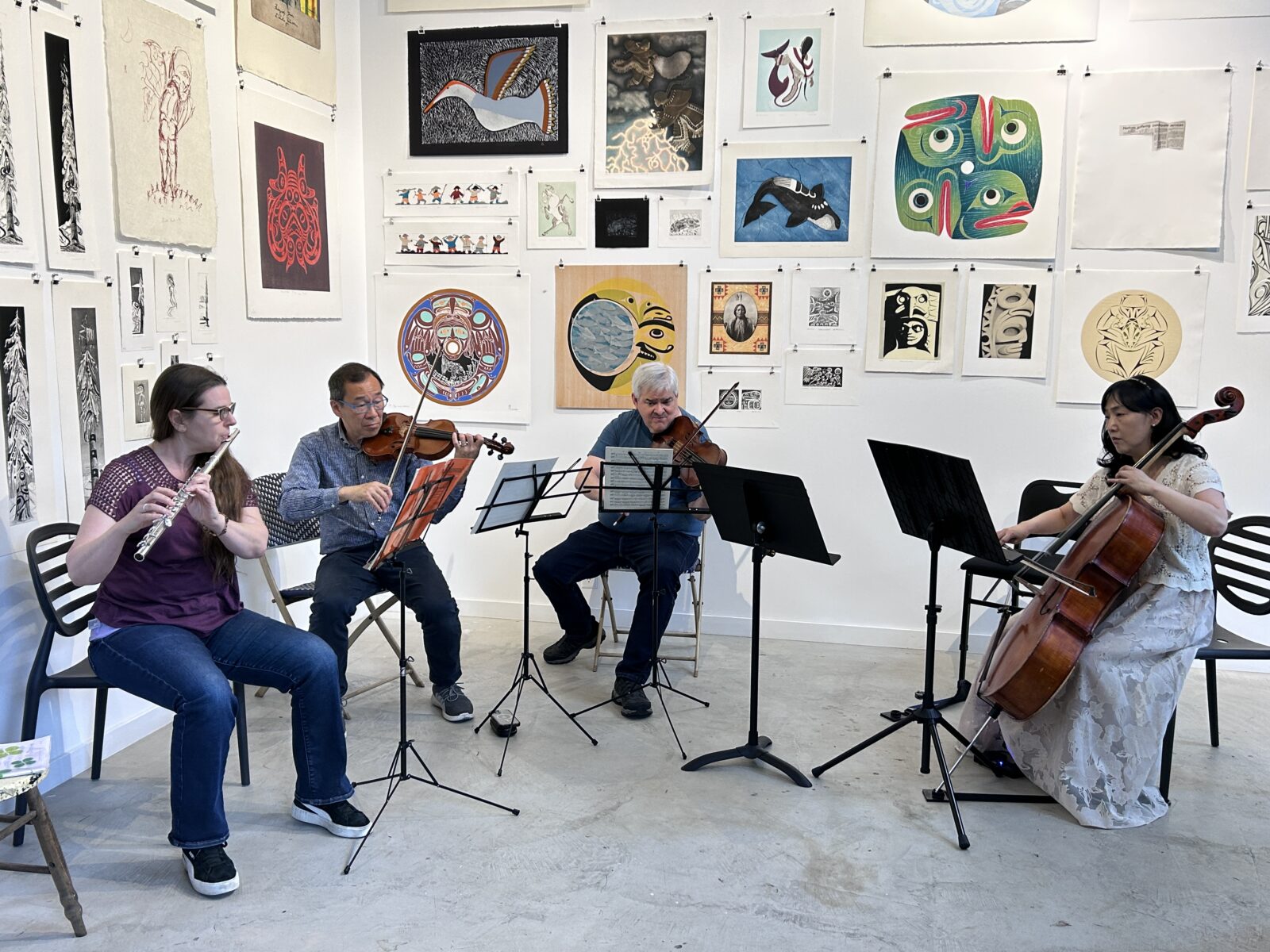
And the Play-Ins continued in June!
With ACMP's rapidly growing community of chamber musicians, Play-In season is never over! Read about two recent Play-Ins in June.Read More ↗
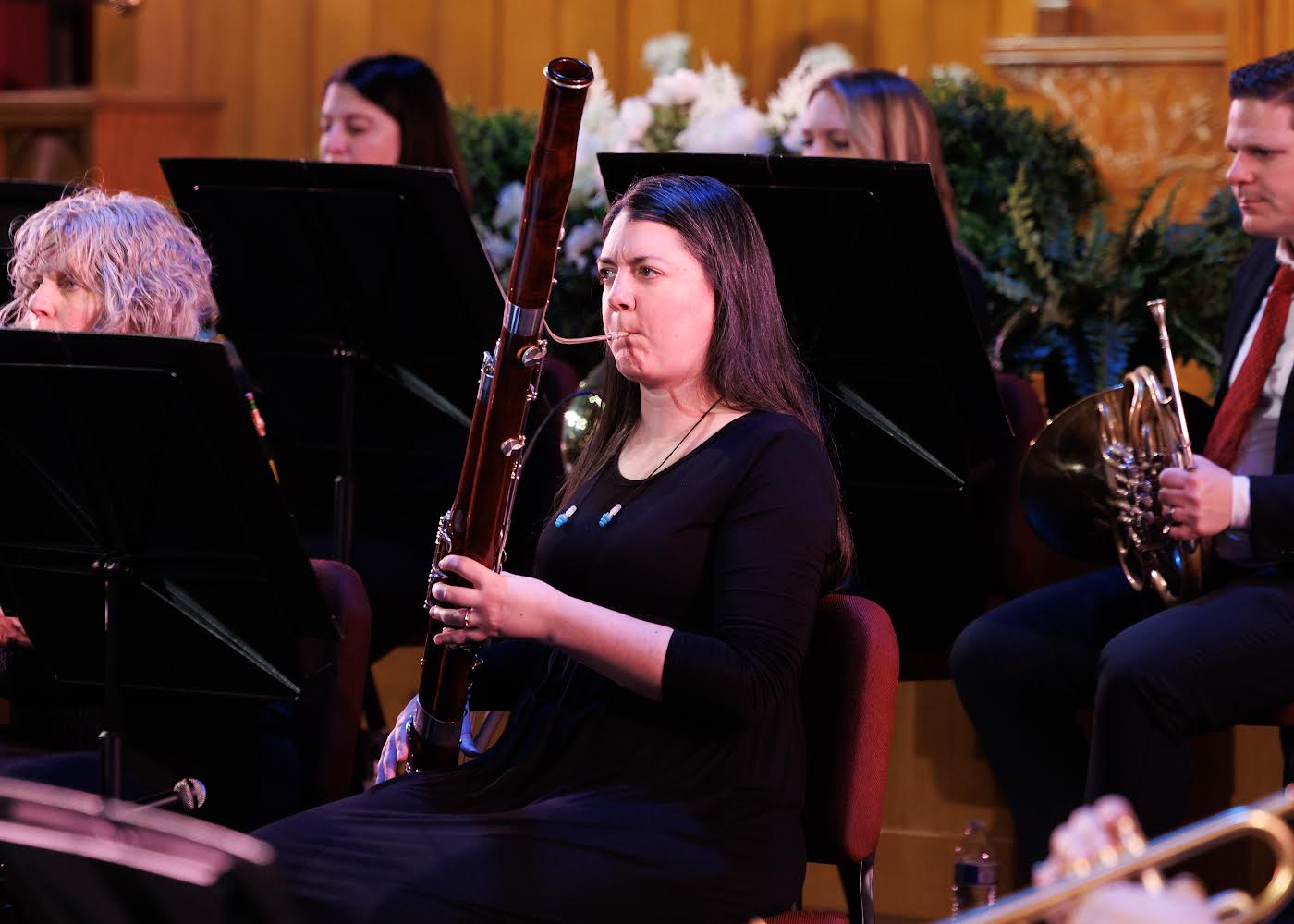
2025 News of Note Puzzle Contest Winner and Answers
Congratulations to bassoonist Jessi Vandagriff for winning this year's News of Note puzzle contest. And read more for the great puzzle answer reveal!Read More ↗
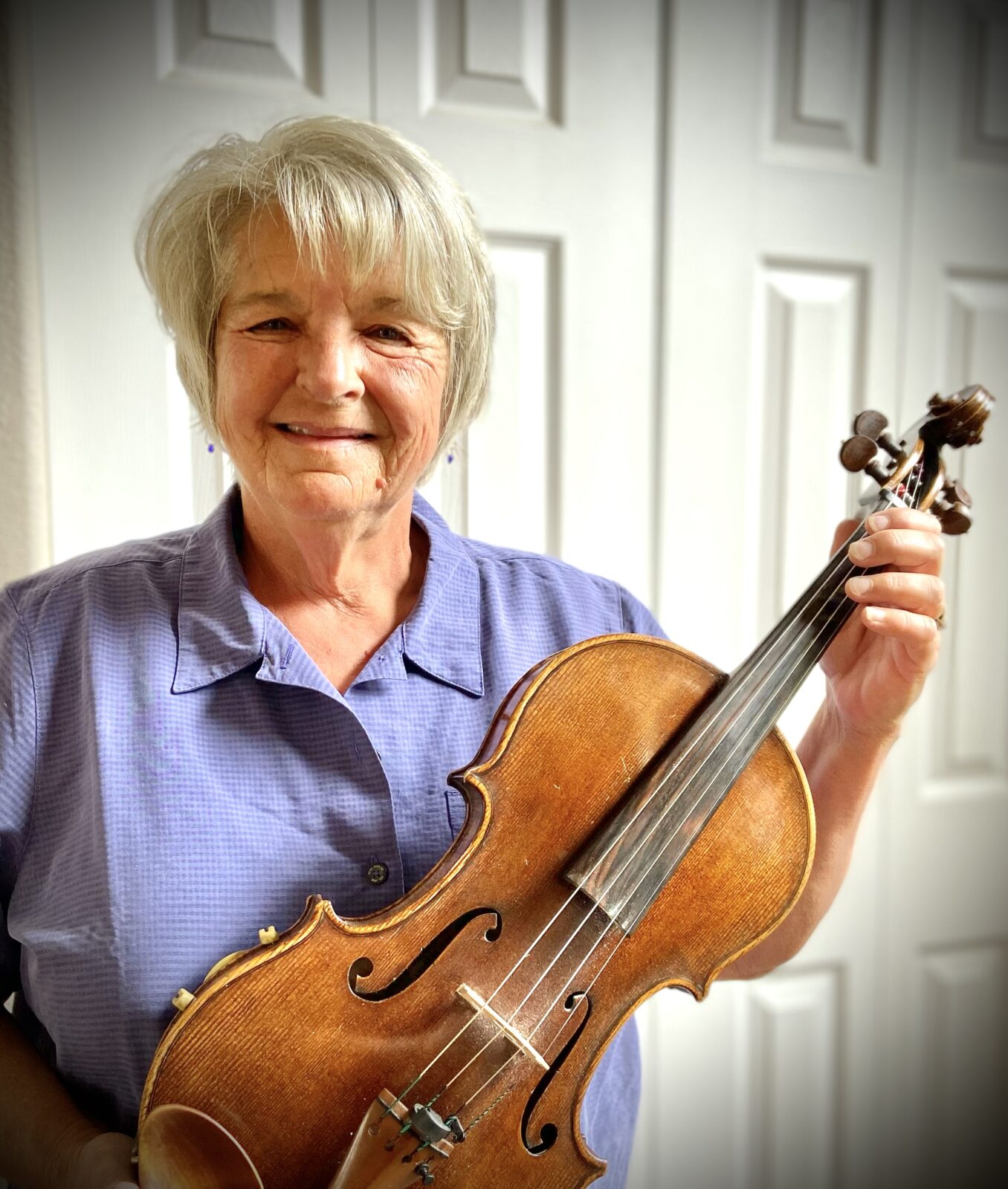
Member of the Month, July 2025: Cheryl Hite
The ranks of ACMP members are filled with professionals who began their college careers with the intent of pursuing music for a living, then for whatever reason moved into another career. Colorado-based violist Cheryl Hite is one of those musicians. A native of Detroit, she enrolled at Indiana University in the 1970s as a double major – biology and viola performance. Read her interview with ACMP Board Chair Bob Goetz.Read More ↗
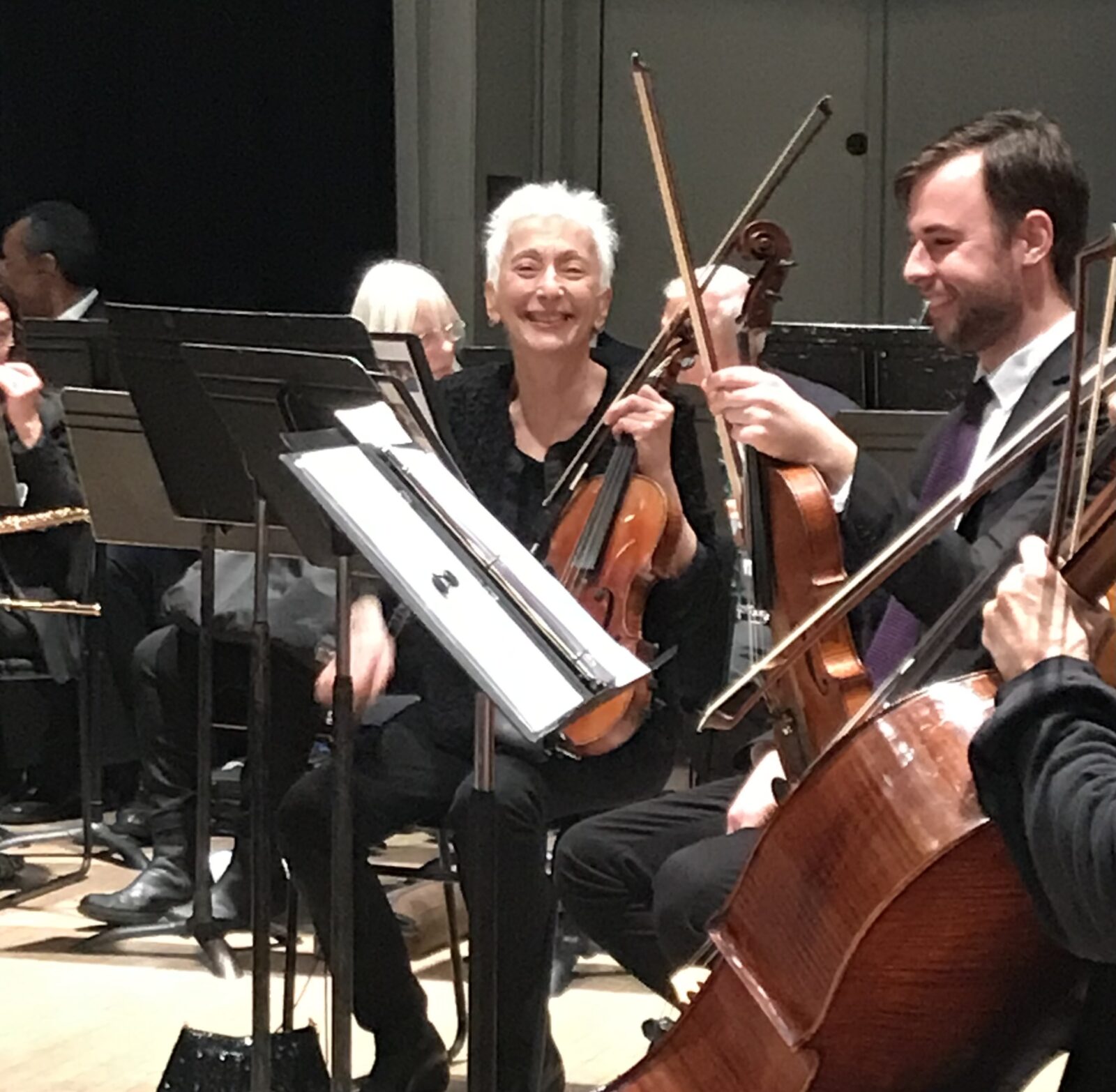
The day my quartet played out of tune and almost got our host evicted
Chamber music can be a high stakes activity - play a bit out of tune, and your host could end up on the street. Read about one such close call in New York City.Read More ↗
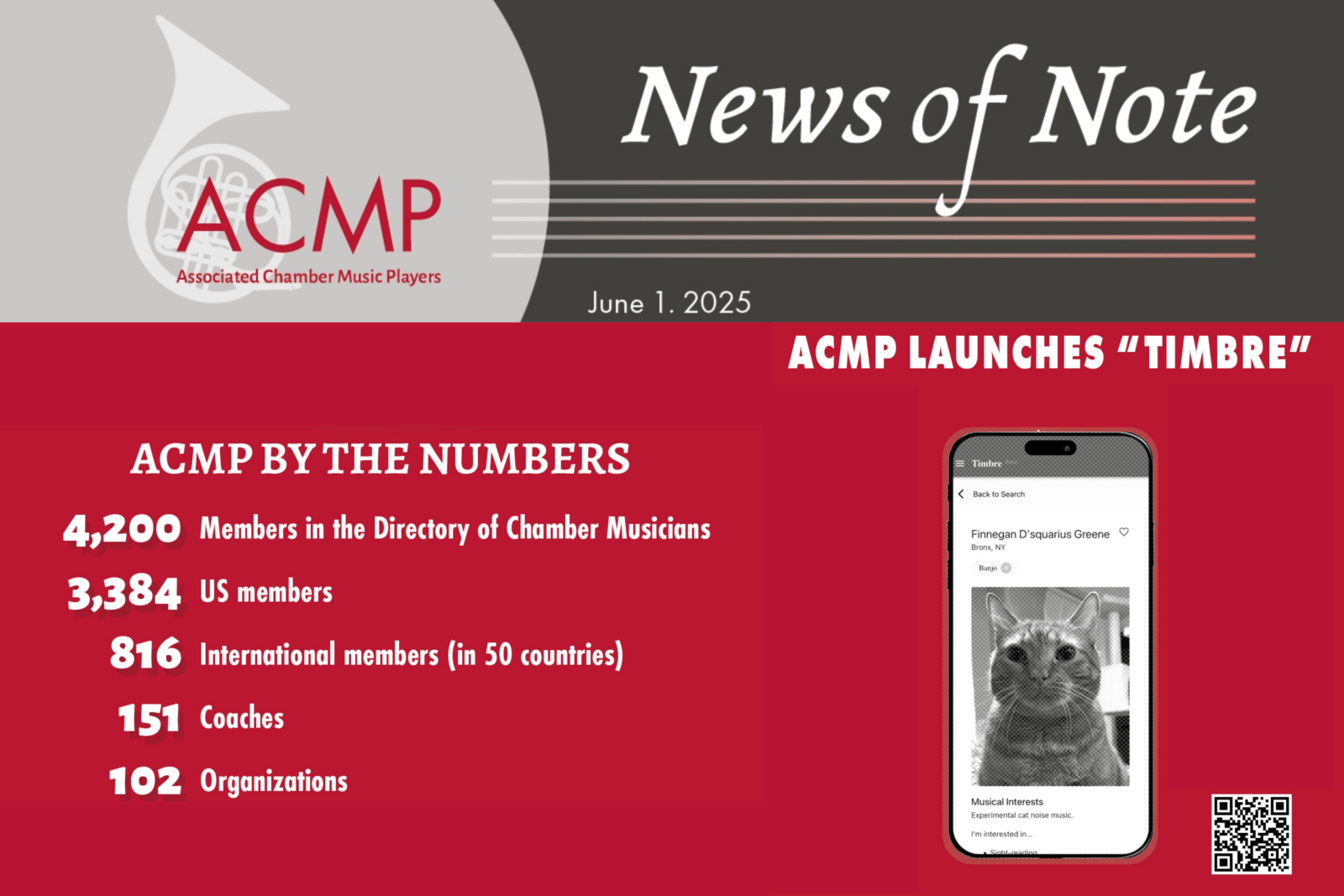
News of Note 2025
It’s that time of year again! The web version of the 2025 News of Note is live, featuring updates from the past year—and some fun extras, including everyone’s favorite: a new puzzle. (Submit your answers by July 1!)Read More ↗
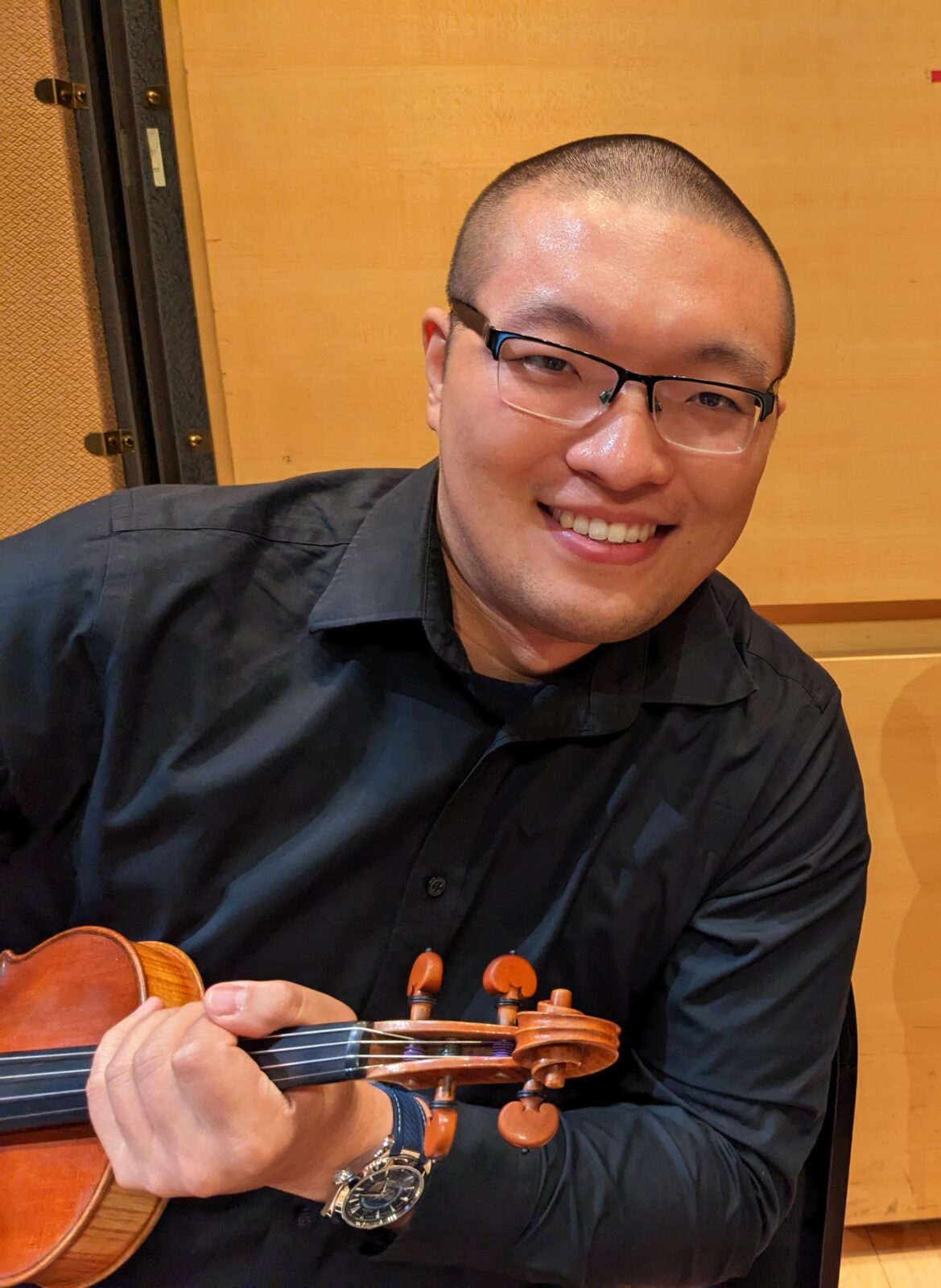
Member of the Month, June 2025: Frank Song
Frank Song, 28, may work remotely as a software engineer, but when it comes to music and the arts, he is all about being there, in person. With the flexibility to travel in his work, he seeks out concerts or museum exhibits in cities far beyond his home in Toronto. And while he’s at it, he takes along his violin to play chamber music. We caught up with Frank on a recent visit to New York, where he played chamber music with people he found through ACMP.Read More ↗

Seasoning for the Seasons
With a taste for adventure and a pinch of whimsy, follow ACMP cellist Tom Cappaert’s lead: stage a chamber concert in a Quito pizza parlor.Read More ↗
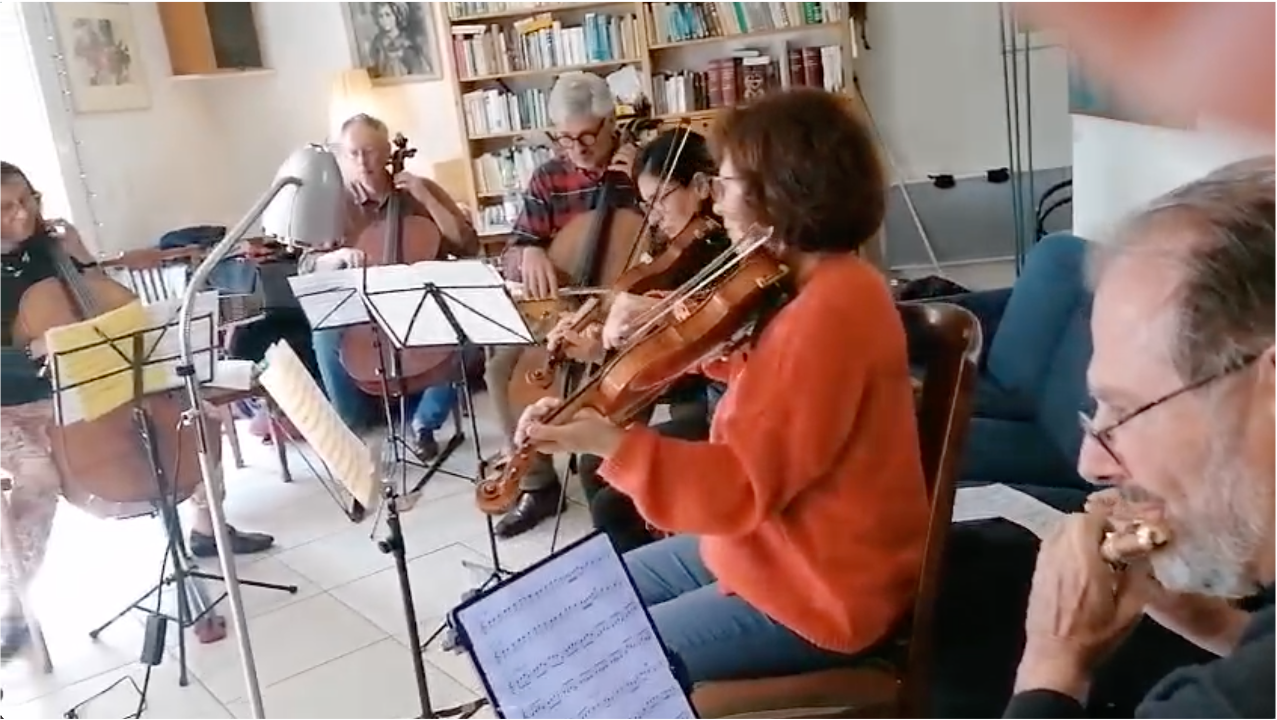
May 2025 Play-In Highlights!
Highlights from just a few Play-Ins during National Chamber Music Month!Read More ↗
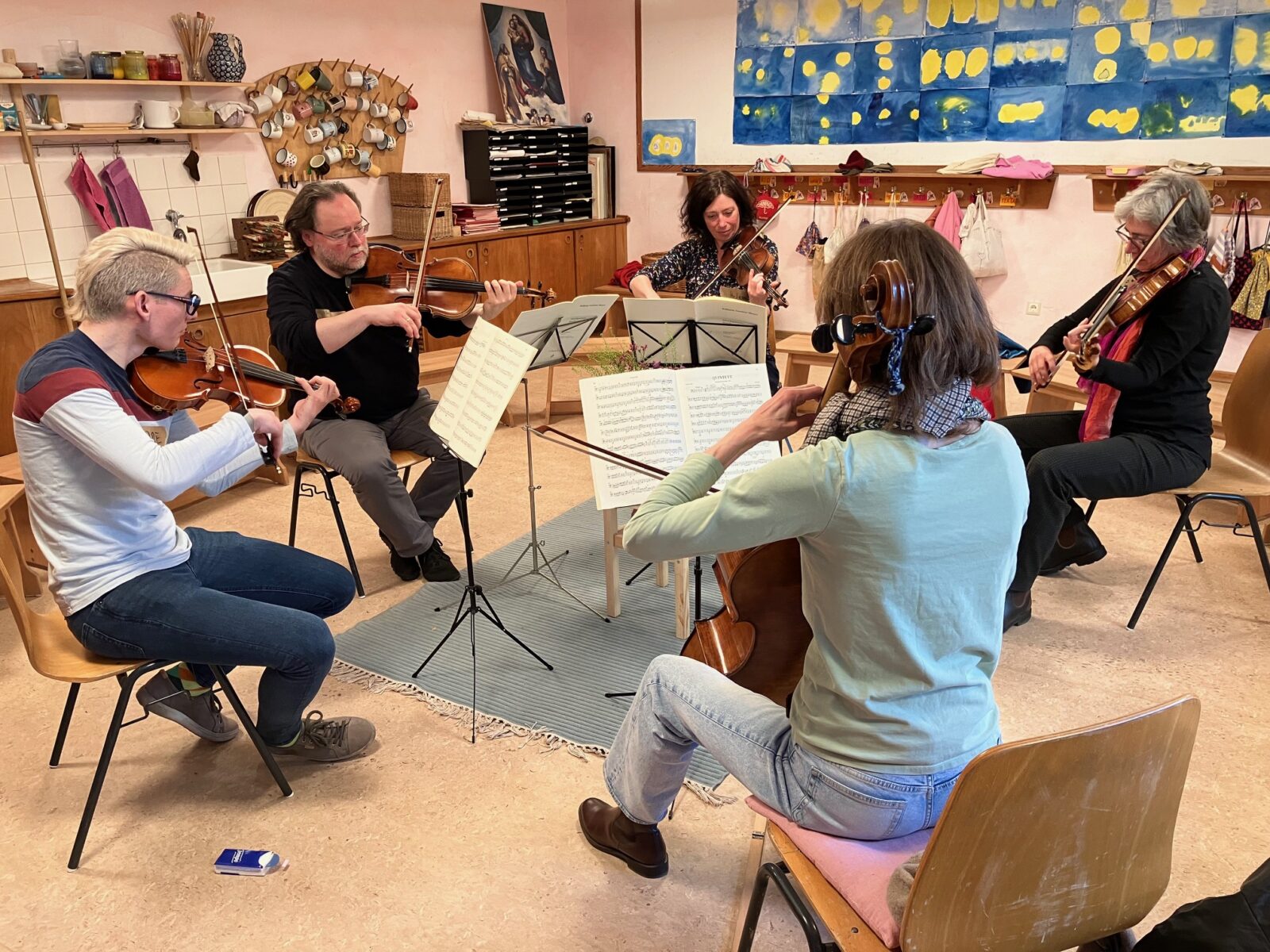
Play-In Report: Berlin Kammermusik Liste
Michael Knoch runs the Berlin Kammermusik Liste, and represents ACMP as its International Ambassador in Germany. He holds at least two Play-Ins a year, and has a unique gift for organizing large Play-Ins with a mix of all instruments and voice. Read about his second Play-In of 2025!Read More ↗
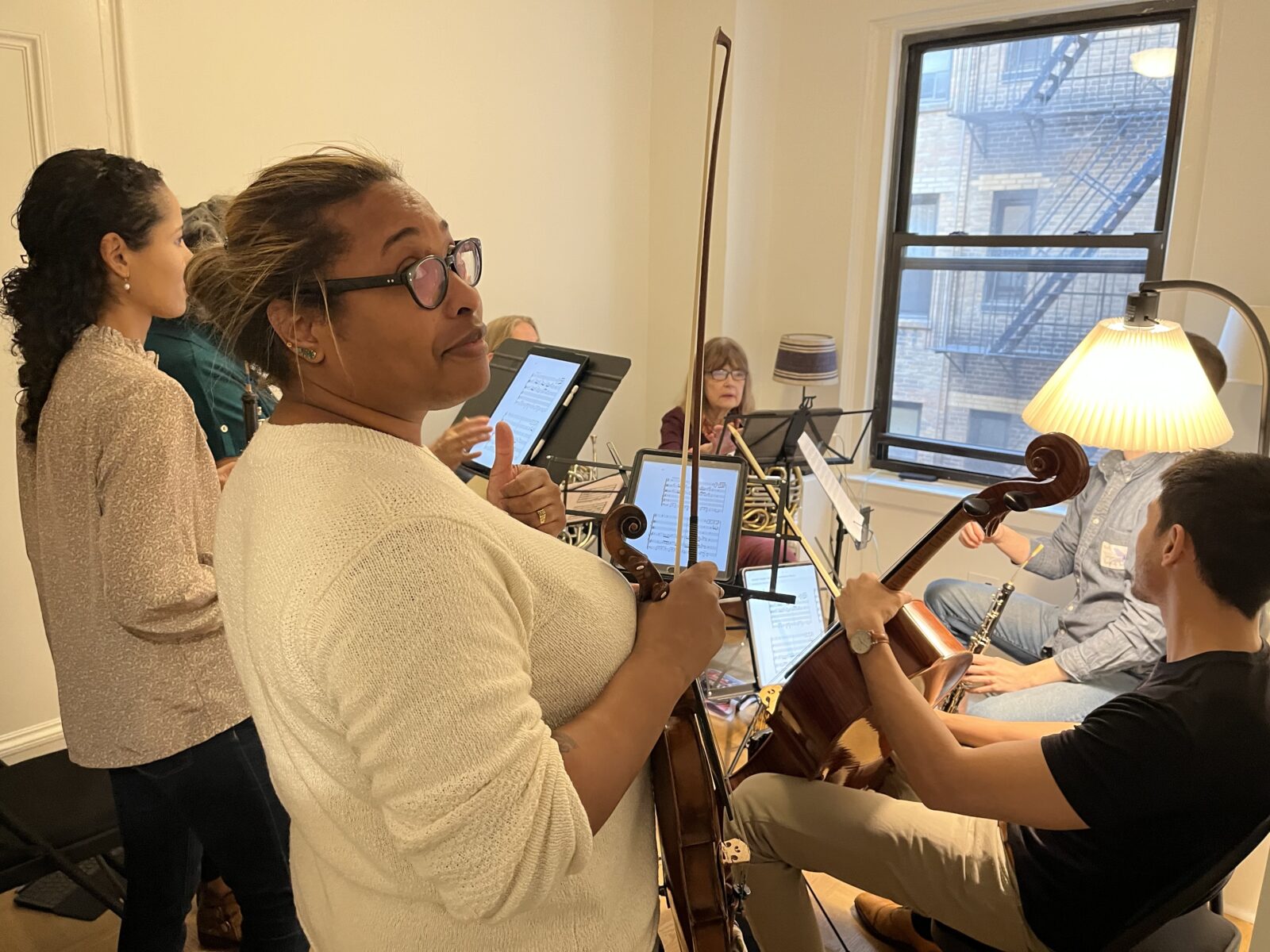
2025 Worldwide Play-In Events
May is Chamber Music Month! Celebrate with Play-Ins all month long, and during the Worldwide Play-In Weekend: May 16-18, 2025. See this list of Play-Ins in the ACMP Directory to date, and keep checking it for updates.Read More ↗
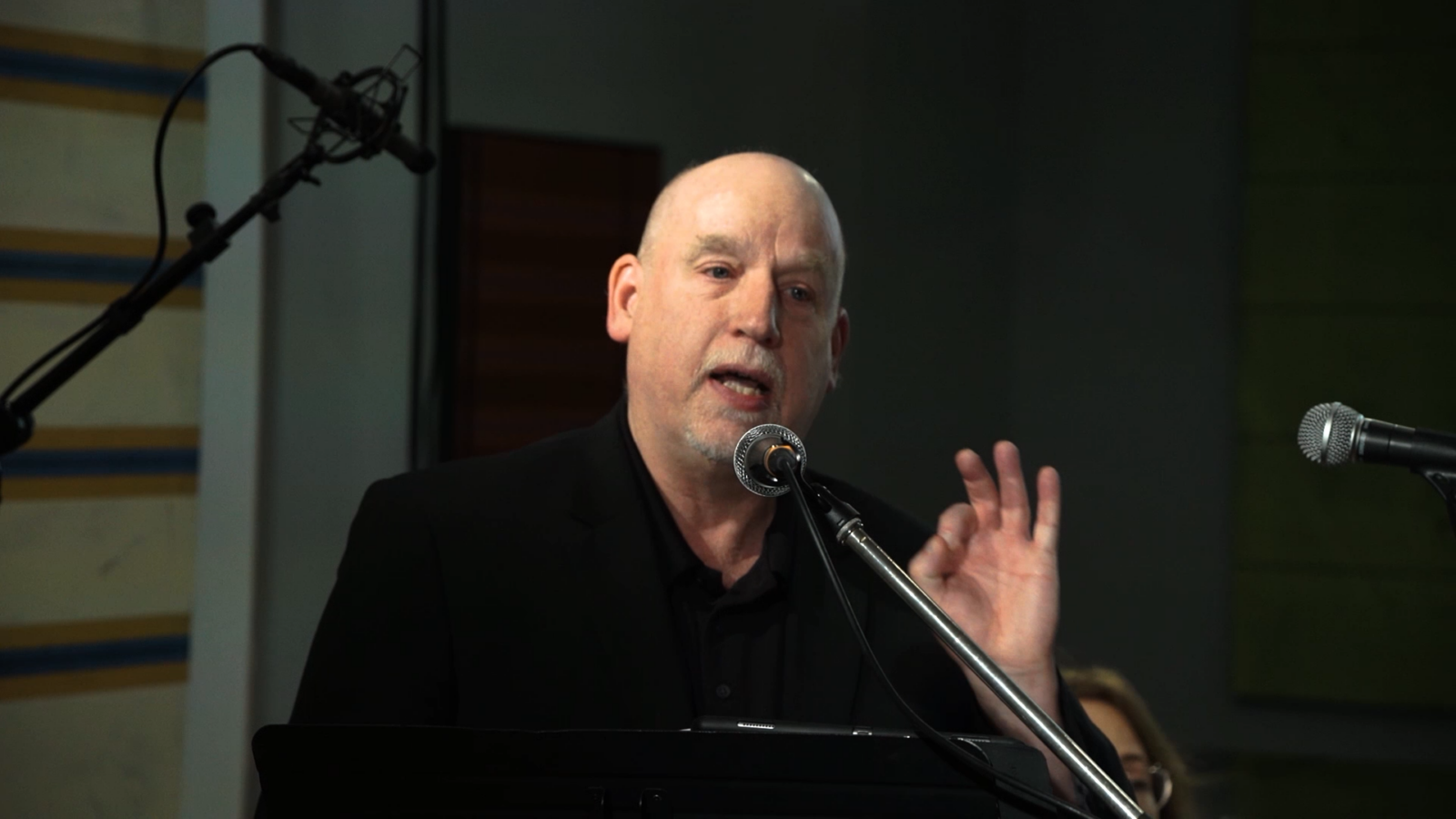
New Video: Ravel’s String Quartet with Cal!
Cal Wiersma is back, sharing ensemble tips and tricks through the lens of Ravel’s String Quartet.Read More ↗
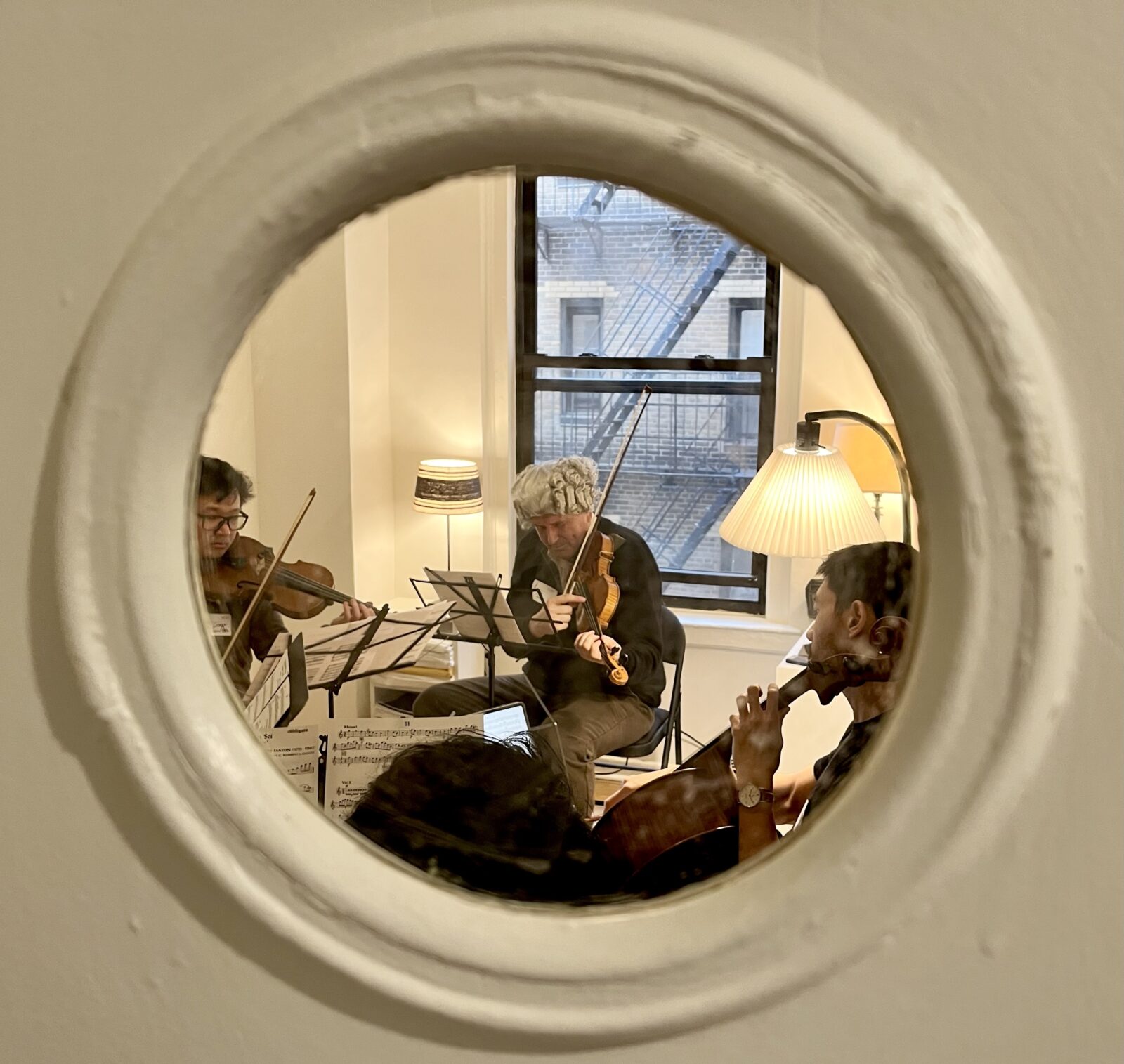
Here’s looking at you, Joe!
One day before Haydn's 293rd birthday - a Haydn party happened in Manhattan. Haydn himself appeared (in the form of ACMP violinist, board member and host, Bob Goetz.) 30 players participated - one third of the participants were wind and brass players! Read about the party and get some fun repertoire ideas!Read More ↗
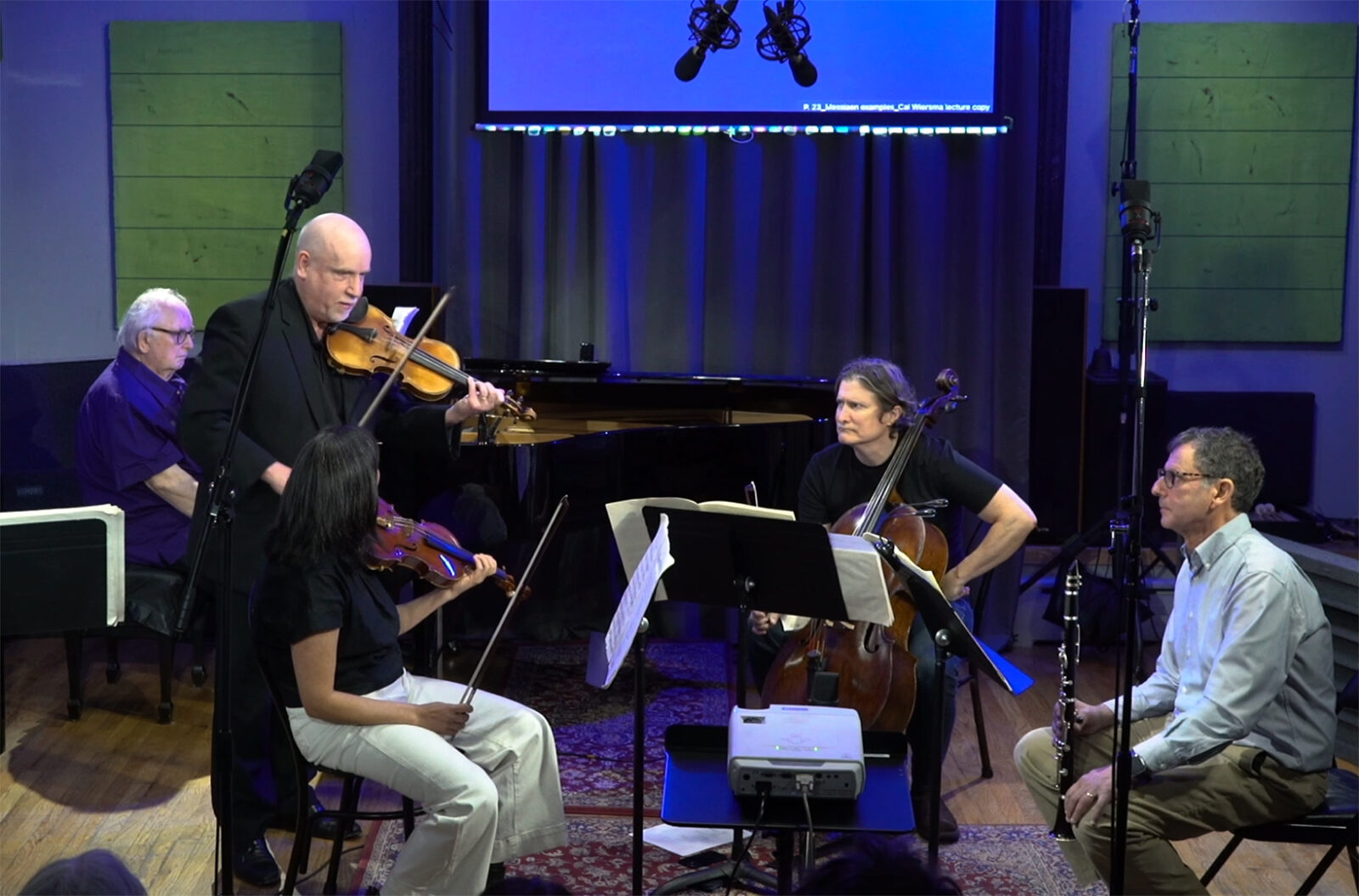
Cal Wiersma Class: Rehearsal Techniques in Ravel’s String Quartet
Back by popular demand - ACMP is offering another live and live-streamed class with violinist and chamber music coach Cal Wiersma on chamber music rehearsal techniques in Ravel's String Quartet on Sunday, April 6 at 3pm ET.Read More ↗
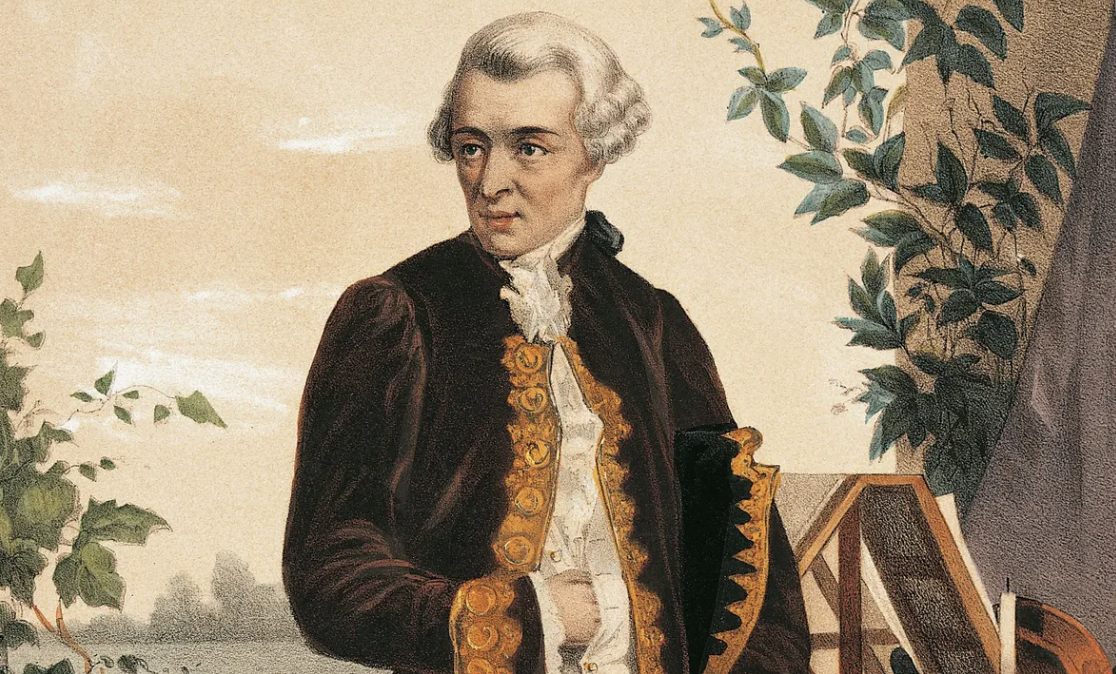
The 2025 ACMP Haydn Challenge
March 31 is Joseph Haydn’s birthday! It’s also a fabulous occasion to celebrate his contributions to the world of chamber music with a gift in his honor to ACMP…Throughout the month of March, we hope you will participate in the ACMP Haydn Challenge.Read More ↗
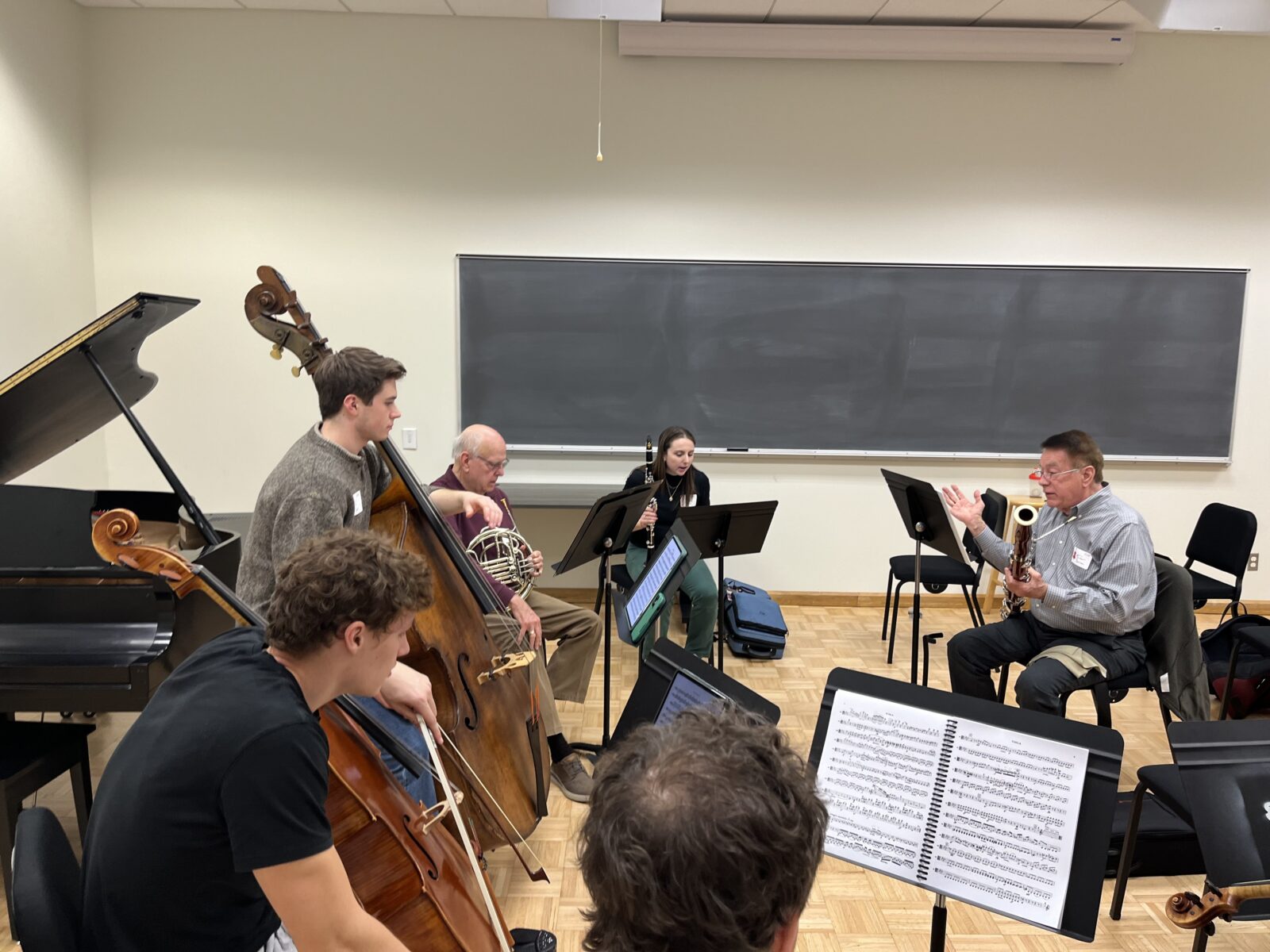
Post-CMA Conference Recap 2025
The CMA Conference in Houston—four days of nonstop music, inspiring connections, a jam-packed ACMP Play-In and a surprise woodwind trio at the Menil Collection!Read More ↗
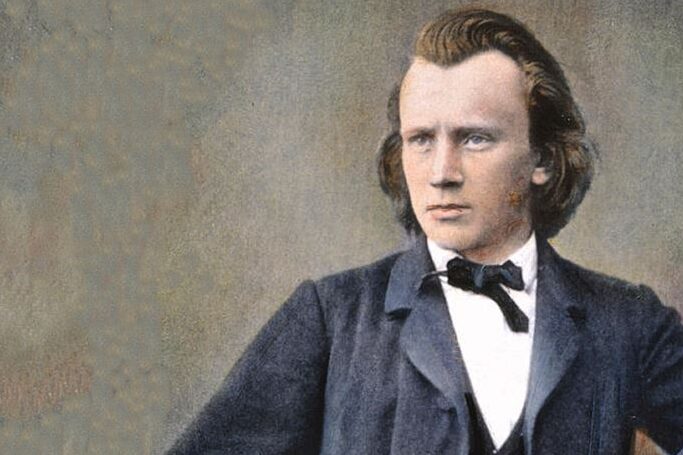
New Listening Club Video: Exploring Brahms Piano Quintet in f minor, Op. 34
Out now! Watch the video recording from our recent Listening Club event with Peter Fender returning and going through Brahms’ Piano Quintet in F minor, Op. 34—an arrangement of an arrangement.Read More ↗
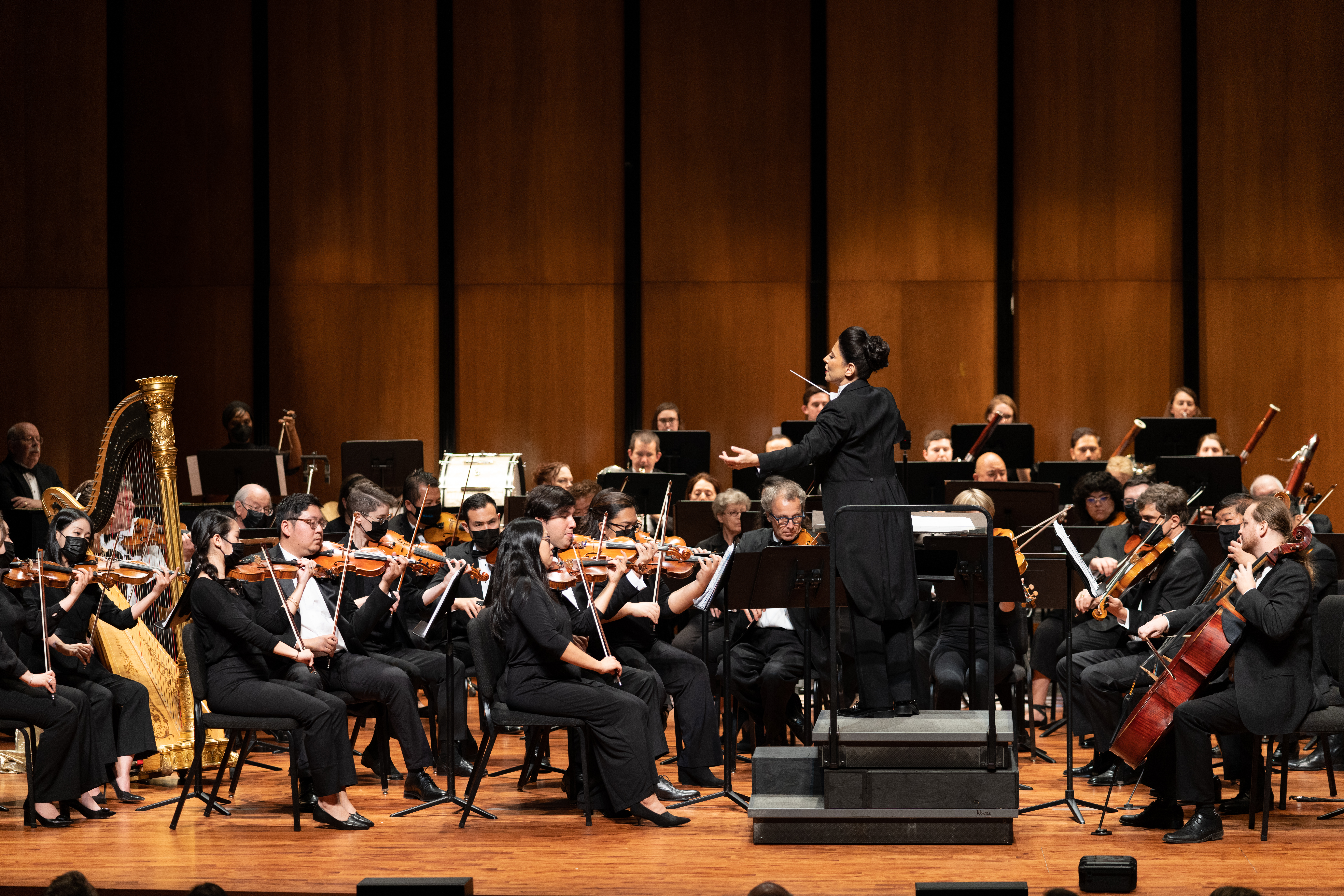
An orchestra born out of one woman’s dream
Over the course of its 25 years, the Texas Medical Center Orchestra has earned national acclaim in becoming a fixture of the Houston musical community. But how it got to this point can be traced to the vision of one woman—Libi Lebel, who moved to the Houston area in the late 1990s as an aspiring conductor and simply wanted to find a group to lead.Read More ↗
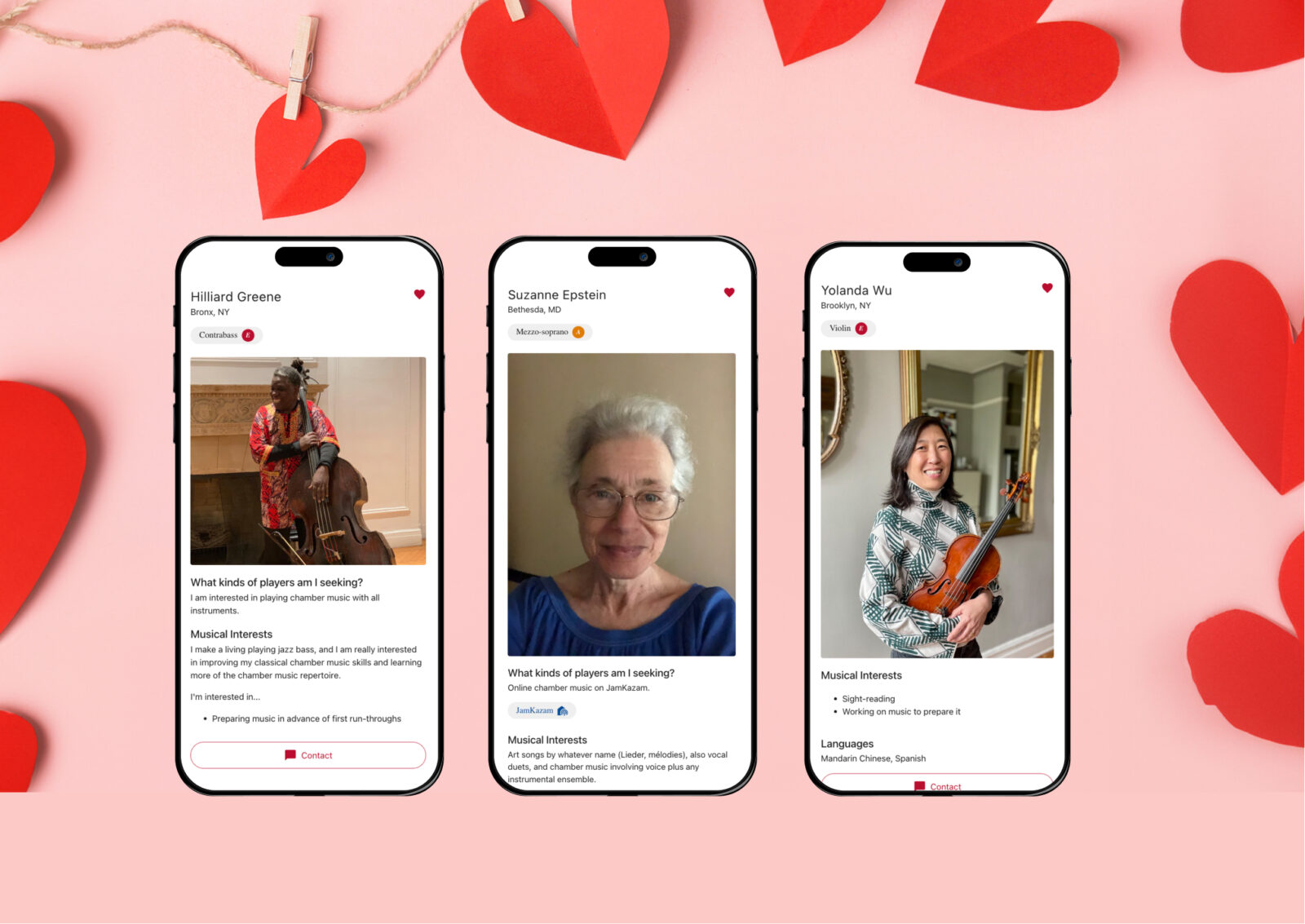
And it’s launched! The new Timbre web app
Just in time for Valentine's Day, ACMP is launching its new Timbre web app. Here's how to find it - and some handy tips on how to use it, too.Read More ↗
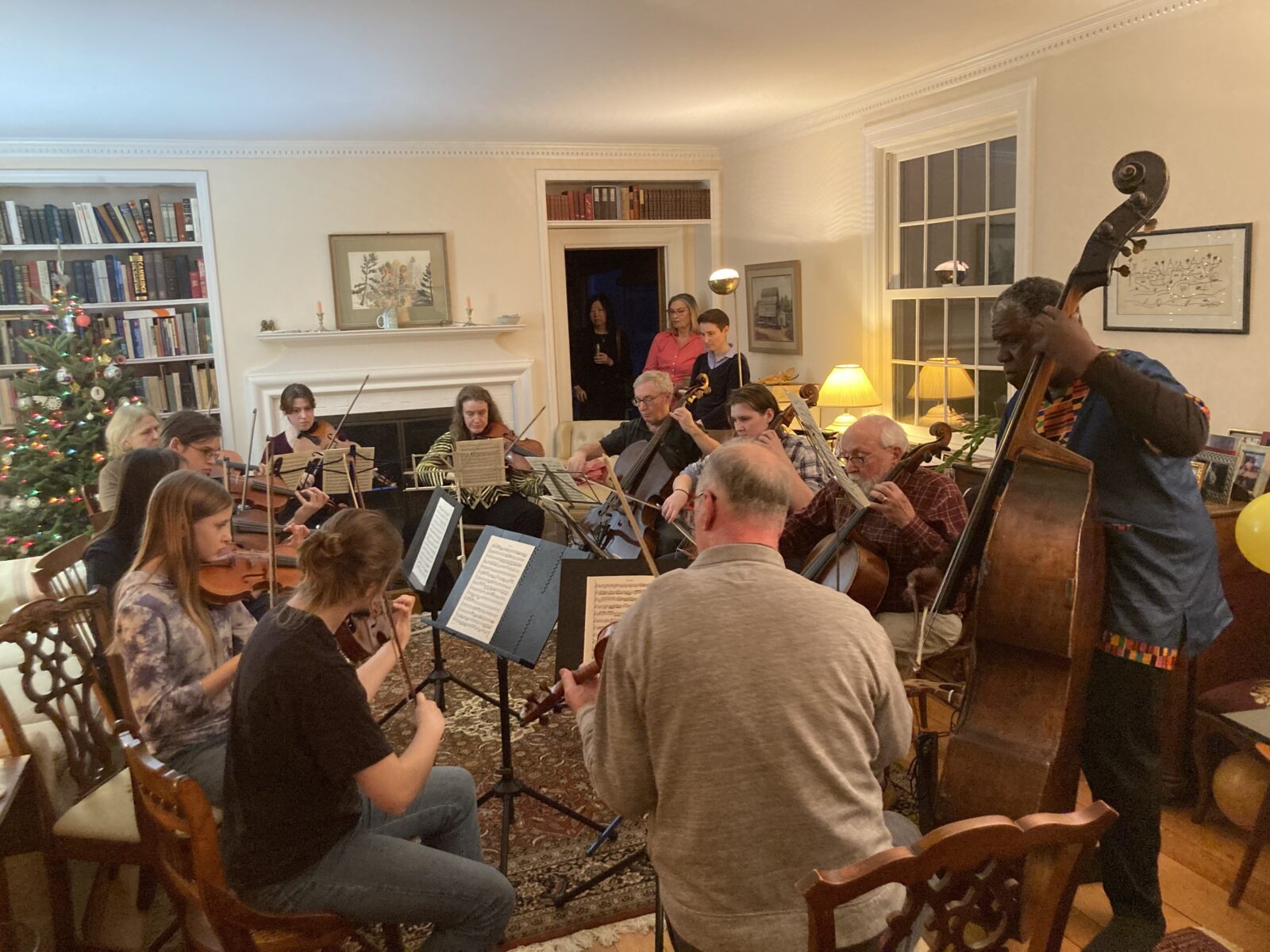
Celebrating the holidays with chamber music!
Looking back on a festive holiday season,ACMP was especially inspired this year by how many of our members made music together in their homes as part of their celebrations. ACMP Executive Director Stephanie Griffin attended two of these, and a special jazz party on New Year's Day.Read More ↗
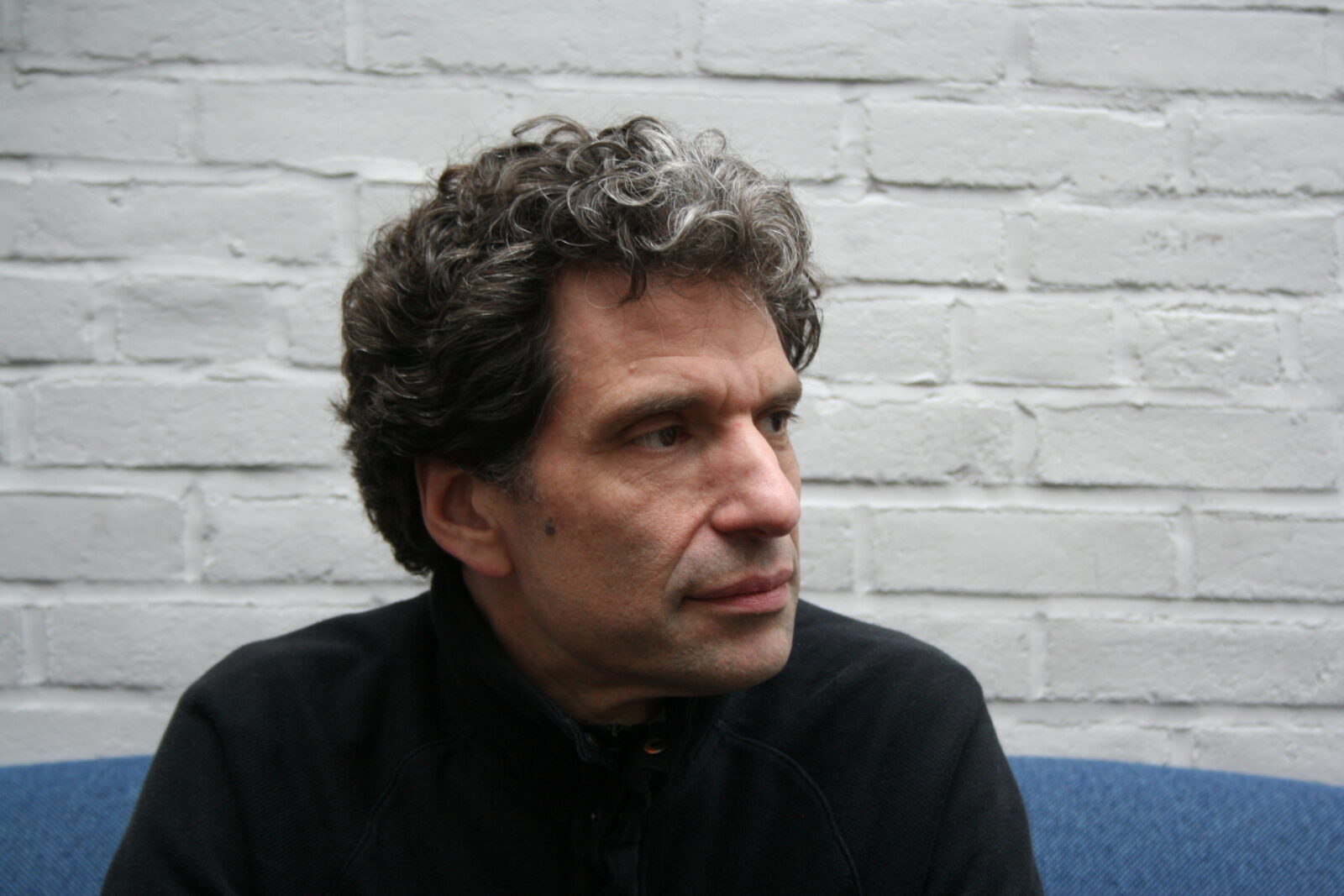
ACMP member discount on Seth Knopp’s new course “Music Speaks”
Join pianist and Yellow Barn Artistic Director Seth Knopp in New York City for a unique new music appreciation course "Music Speaks" on February 22 and 23 and March 1 and 2. And enjoy a 20% discount as a member of ACMP!Read More ↗